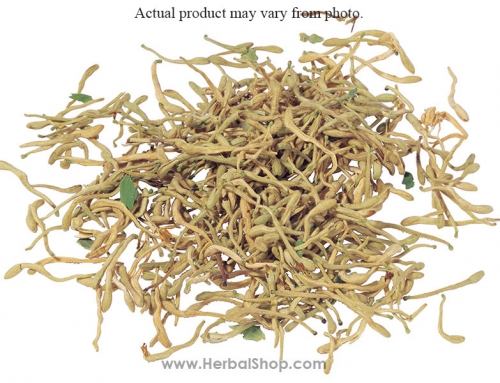地骨皮
Wolfberry bark (Digupi)
Pharmaceutical Name: Cortex Lycii
Botanical Name: 1. Lycium chinensis Mill.. 2. Lycium barbarum L.
Common Name: Wolfberry bark, Lycium bark
Source of Earliest Record: Shennong Bencao Jing
Part Used: The roots are dug in spring or autumn. The bark is peeled off the roots, dried in the sun and cut into pieces.
 Natural Properties & Taste: Sweet or tasteless and cold
Natural Properties & Taste: Sweet or tasteless and cold
Meridians: Lung and kidney
Therapeutic Effects:
• Removes heat from the blood.
• Brings down hectic fever.
• Clears away heat in the lung.
• Lowers blood pressure.
Indications & Combinations:
1. Heat in the blood and deficient yin manifested as afternoon fever and night sweating. Wolfberry bark (Digupi) is used with Anemarrhena rhizome (Zhimu) and Turtle shell (Biejia).
2. Heat in the lungs and deficient yin manifested as cough, asthma and cough with blood. Wolfberry bark (Digupi) is used with Imperata rhizome (Baimaogen) and Biota tops (Cebaiye).
Dosage: 6-15 g
Cautions & Contraindications: This herb is contraindicated in cases with fever due to common cold or weakness of the spleen accompanied by diarrhea.






